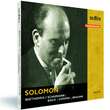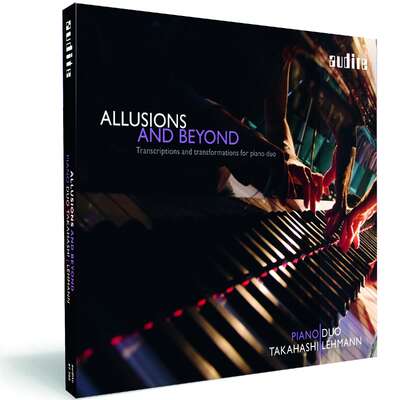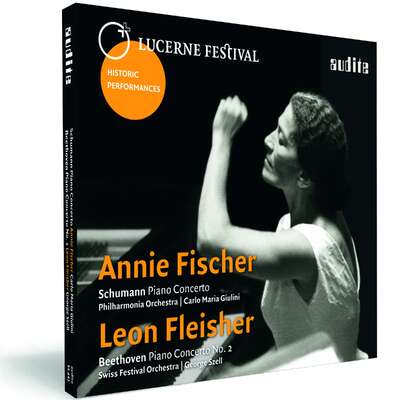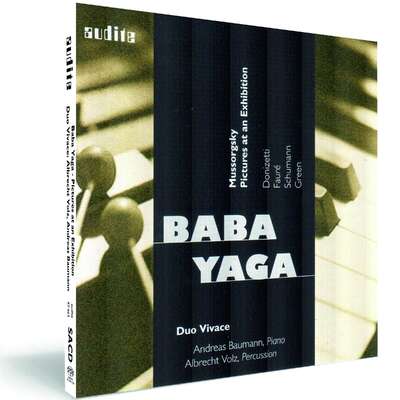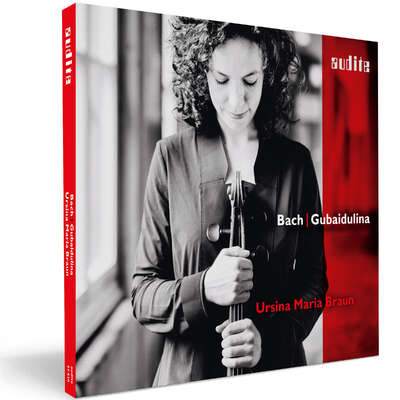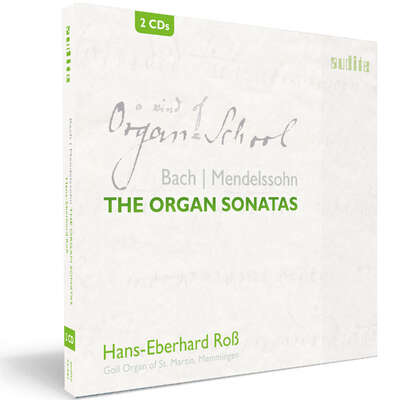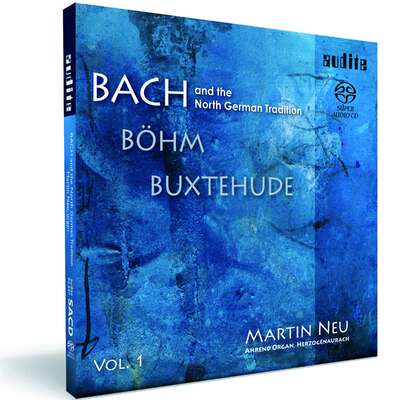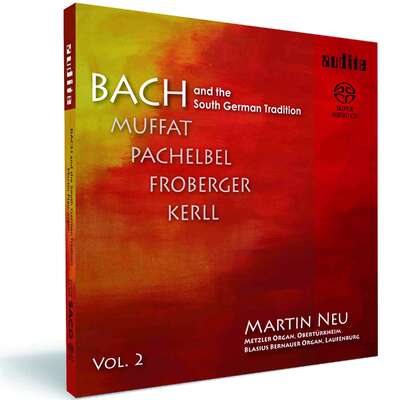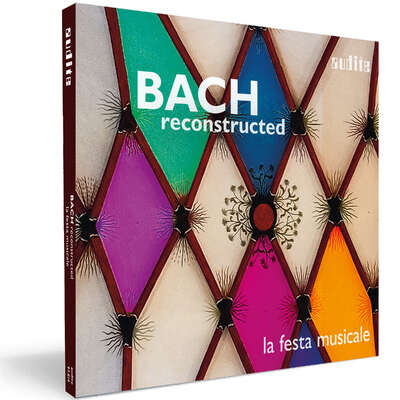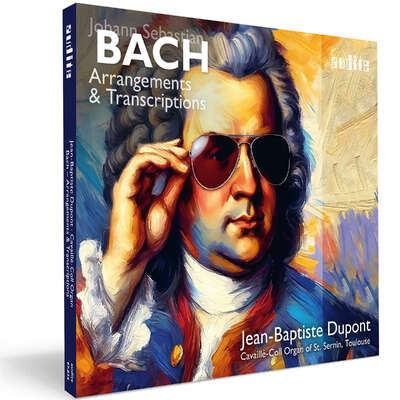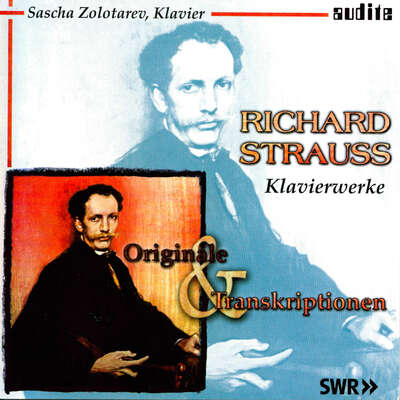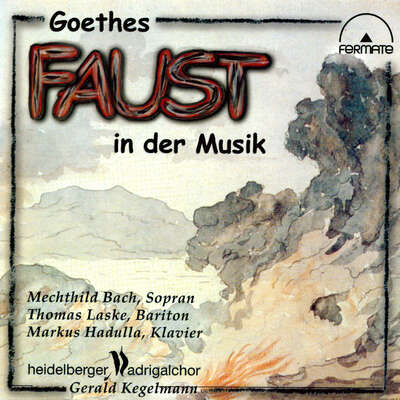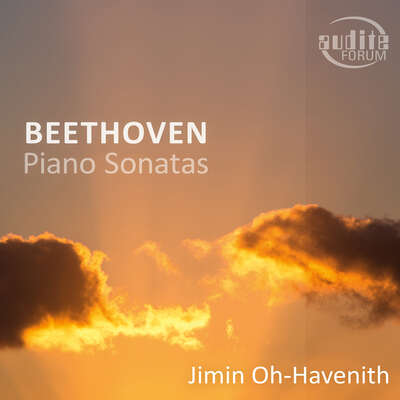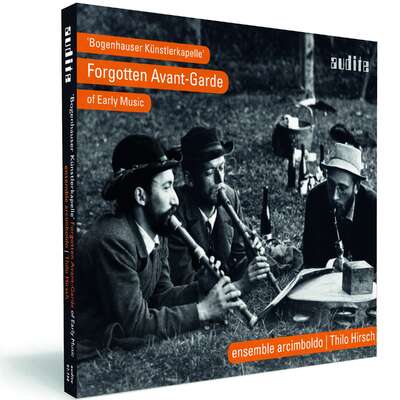
The 1956 RIAS recordings of Solomon, made shortly before the tragic end of his career, are benchmark interpretations even today thanks to their sonorous lucidity and structural transparency.more
The 1956 RIAS recordings of Solomon, made shortly before the tragic end of his career, are benchmark interpretations even today thanks to their sonorous lucidity and structural transparency.
Track List
Details
| Solomon plays Beethoven, Schumann, Bach, Chopin & Brahms | |
| article number: | 23.422 |
|---|---|
| EAN barcode: | 4022143234223 |
| price group: | BCA |
| release date: | 17. September 2010 |
| total time: | 121 min. |
Bonus Material
-
Producer's Comment
First-hand impressions of producer Ludger Böckenhoff [german]
- Supersonic Award_Pizzicato 122010
Informationen
Archive releases of recordings made by the English pianist Solomon (1902-1988) are particularly noteworthy – partly due to the tragic turning point in the life of this exceptional artist. In 1956, during recordings of the complete Beethoven sonatas and following recordings of the piano concertos by Grieg and Schumann for EMI-Columbia, he suffered a major stroke which forced him into silence for the rest of his life. The music world was thus robbed of an eminent pianist and artist who, with his technically and creatively superior interpretations, always managed to penetrate the core of the musical message. Solomon’s recordings of the classical and romantic piano repertoire document the highest artistic standing and, as such, take an immovable place in the history of pianism.
This programme, which was recorded in February 1956 at the RIAS Berlin, is one of the last recordings made by Solomon. It is compiled in the same manner as his concert tours of 1955: two Beethoven sonatas form the centrepiece and are supplemented by works of Bach, Chopin, Schumann and Brahms.
You can find a “Producer’s Comment” from producer Ludger Böckenhoff about this CD on our home page: http://www.audite.de/en/newreleases/CD/23422.
The production is part of our series „Legendary Recordings“ and bears the quality feature „1st Master Release“. This term stands for the excellent quality of archival productions at audite. For all historical publications at audite are based, without exception, on the original tapes from broadcasting archives. In general these are the original analogue tapes, which attain an astonishingly high quality, even measured by today‘s standards, with their tape speed of up to 76 cm/sec. The remastering – professionally competent and sensitively applied – also uncovers previously hidden details of the interpretations. Thus, a sound of superior quality results. CD publications based on private recordings from broadcasts or old shellac records cannot be compared with these.
Reviews
Scherzo | Jg. XXVI, N° 267 | Rafael Ortega Basagoiti | June 1, 2011
Solomon
Sensibilidad
Audite nos ofrece un doble álbum con las grabaciones que Solomon CutnerMehr lesen
Image Hifi | 99 (3/2011) Mai/Juni 2011 | Michael Rassinger | May 1, 2011
Solomon: Beethoven, Schumann, Bach, Chopin, Brahms
Das Label Audite präsentiert Aufnahmen des britischen Ausnahme-Pianisten Solomon, die von den Originalbändern digital remastert wurden
Es passiert nicht oft, aber manchmal eben doch: Man hört ein vertrautesMehr lesen
American Record Guide | 01.05.2011 | Alan Becker | May 1, 2011
These monaural Berlin recordings were made towards the very end of this great English pianist’s performing life. They are reasonably clean soundingMehr lesen
Piano News | 2/2011 (März/April) | Carsten Dürer | March 1, 2011 Pohjola und Kollegen
Wenn es um Durchsicht von historischen Aufnahmen geht, ist man nicht gefeitMehr lesen
Gramophone | February 2011 | February 1, 2011
Musical mainstays of the I950s
Solomon, Casadesus and Fricsay
Audite have released a well-produced double-pack of "The 1956 RIAS recordings of Solomon". Most of the items have already appeared on APR (4/95), theMehr lesen
However, if you've never acquired the 1959 (Philips) coupling of Beethoven's First and Fourth Piano Concertos with Robert Casadesus and the Concertgebouw Orchestra under Eduard van Beinum, Pristine Audio now affords you the opportunity. These are coolly considered, clear-headed performances, fluent, profoundly classical in style and sonically well balanced. In a word, satisfying – and you have the added interest of Casadesus's own cadenzas. Pristine have also released an earlier (mono) Casadesus recording of Falla's Nights in the Gardens of Spain with the New York Philharmonic under Dimitri Mitropoulos, translucent often exciting playing, vividly accompanied. The same all-Falla CD also includes Mitropoulos's highly individual versions of Three Dances from The Three-Cornered Hat and the "Interlude and Dance" from La vida breve. If you want big, "butch" Falla, then Mitropoulos is your man.
And for a vivacious, affectionately phrased Johann Strauss II miscellany you could hardly do better than an Audite disc of early 1950s radio recordings by the RIAS Symphony Orchestra under Ferenc Fricsay. This is Strauss in the tradition of Reiner, Dorati and Szell, disciplined but loving. Shame about a couple of nasty edits in the Kaiser-Walzer – otherwise the sound more or less matches any good commercial recording of the period.
Diverdi Magazin | ano XX n° 200 (febrero 2011) | Roberto Andrade | February 1, 2011
El pianista que no tenía apellido
Formidables re procesados sonoros de Audite de grabaciones del británico Solomon
Comenté en este Boletín, en el ya lejano año de 2002, varios CD que Testament dedicó al pianista británico Solomon Cutner (1902-1988), de nombreMehr lesen
Buena parte de la música recogida en estos dos CD Audite figura en la citada colección de Testament, pero hay algunas novedades: los dos Intermezzi opus 118.6 y opus 116.4, más la Primera Rapsodia opus 79.1 nos recuerdan qué extraordinario intérprete de Brahms fue Solomon (¿hace falta mencionar los dos Conciertos para piano y orquesta, la Tercera Sonata para piano o las Variaciones Haendel?). También es novedad el precioso Concierto italiano de Bach, desgranado con una admirable claridad de líneas, a tempo constant en cada movimiento, pero sin el menor atisbo de lectura mecánica, que tanto puede perjudicar a esta bellísima música y a la melodía infinita de su andante, en particular. Excelente el trío de obras de Chopin, sobre todo la Fantasía en fa menor opus 49 y el hipnótico Primer Nocturno, opus 9.1, de matizadísima sonoridad; el Segundo Scherzo, sin duda arrebatador, suena un poco precipitado. Estas dos últimas piezas tampoco figuraban en la antología de Testament. El Carnaval de Schumann vuelve a ser memorable, como lo era el de Testament, y figura entre las referencias fonográficas de esta obra. Las dos Sonatas de Beethoven incluidas, opus 2.3 y Claro de luna opus 27.2, revalidan la excelsa calidad de Solomon como intérprete del músico de Bonn, sensible por igual a los aspectos clásico y romántico que alternan en estas dos sonatas de juventud.
En resumen, dos horas con Solomon en el estudio de la RIAS en Berlín, captadas con excelente sonido, eco de los recitales que ofreció en la capital alemana en febrero de 1956, son una fiesta para cualquier aficionado.
ouverture Das Klassik-Blog | 11. Januar 2011 | January 11, 2011
Solomon - Beethoven, Schumann, Bach, Chopin, Brahms (Audite)<br /> <br /> SolomonMehr lesen
Solomon
Hi-Fi News | January 2011 | CB | January 1, 2011
A Jewish boy from the East End, Cutner Solomon went from exploited child prodigy to master pianist, his career abruptly cut short at 54 by a strokeMehr lesen
BBC Radio 3 | 25 Dec 2010, 9.00 am | Andrew McGregor | December 25, 2010 BROADCAST CD review - Christmas Day Special
Andrew Mc Gregor introduces a special Christmas Day edition of CD Review, rounding up some of the year's new releases from composers celebrating theirMehr lesen
Sendebeleg siehe PDF!
Fono Forum | Januar 2011 | Ingo Harden | December 15, 2010 Klassisch konzentriert
Bei Audites neuem Doppelalbum mit „historischen“ RIAS-Produktionen handelt es sich nicht um CD-Premieren: Die Berliner Studioaufnahmen Solomons,Mehr lesen
Walter Rathert hat im Begleitheft Solomons Kunst mit dem Hölderlin-Wort „heilignüchtern“ zu fassen versucht. Er trifft damit Wesentliches, sofern man den Ausdruck nicht als schönfärberisches Synonym für Blässe oder sklavisches Buchstabieren missversteht. Im Gegenteil gehörte Solomon ja zu den kraftvollsten und zugleich formvollendetsten Pianisten der ersten Hälfte des vorigen Jahrhunderts, die wie etwa Backhaus, Rubinstein, Gieseking, Gilels, dann auch Michelangeli und Anda konsequent dem damals jungen Ideal entschiedener Werktreue folgten. So sind sein Bach, Beethoven und Schumann Muster geradliniger, kernig und überlegen disponierter Gestaltung, sein Chopin öffnet, um ein Wort Schumanns zu variieren, den Blick auf die „unter Blumen verborgenen Kanonen“ dieser Musik. Mag manchem darüber ein träumerisch-romantischer Ton auch etwas kurz gekommen sein: In der Verbindung von kompakter Konzentriertheit mit musikalisch perfekter Nachzeichnung aller Melodie- und Formbögen ist Solomons Spiel nach wie vor modellhaft.
Sehr leise, tonbandbedingte Vorechos, vereinzelt minimale grifftechnische Flüchtigkeiten.
Pizzicato | N° 208 - 12/2010 | Alain Steffen | December 1, 2010 Ein Monument
Von Solomon gibt es nicht so viele Aufnahmen, so dass jede Veröffentlichung mit beiden Händen entgegengenommen wird. Und wenn das Resultat derMehr lesen
Die Erkenntnis, welch uneigennütziger und einmaliger Interpret Solomon war, eröffnet sich dem Zuhörer bereits in den beiden Klaviersonaten Nr. 3 & 14 von Ludwig van Beethoven. Der edle Anschlag, die faszinierende Schlichtheit bei der Auslotung der Musik, die unwahrscheinliche Tiefe, die ohne Effekte erreicht wird und natürlich die brillante Technik weisen Solomon als einen Grandseigneur des Klaviers aus. Seine interpretatorische Einmaligkeit, die man vielleicht nur mit Claudio Arrau vergleichen kann, prägt dann auch Schumanns Carneval und die Intermezzi op. 118/6 und op. 116/4 sowie die Rhapsodie op. 79/1 von Johannes Brahms. Die Fantasie op. 49, Nocturne op. 9/1 und Scherzo op. 31 von Frederic Chopin zeigen, dass dieser Komponist auch in den Fünfzigerjahren nicht nur als Salonvirtuose, sondern als ein äußerst versierter Komponist angesehen wurde. Nur das italienische Konzert von Johann Sebastian Bach hat trotz Solomons intensiver Darstellung, vom heutigen Standpunkt aus gesehen, etwas Staub angesetzt, weil die Bachinterpretation damals von einem sehr romantischen Blickpunkt aus erarbeitet wurde. Aber auch das ist ein Zeitdokument. Wir können diese einmalige Veröffentlichung von Audite, die man als ein wirkliches Monument bezeichnen darf, nur wärmstens weiterempfehlen.
andante | 2010 December | December 1, 2010 Solomon
koreanische Rezension siehe PDFMehr lesen
www.musicweb-international.com | 01.12.2010 | Jonathan Woolf | December 1, 2010
Admirers of Solomon will know that a number of years ago APR released a two disc set of his Berlin recitals [APR7030]. This set replicates thoseMehr lesen
According to Bryan Crimp’s biography, Solomon spent eight days in Germany in February 1956. He performed the Beethoven Second Concerto with the Berlin Philharmonic and Cluytens, and played recitals in Detmold, Wuppertal, Hamburg and Frankfurt. Whilst in Berlin he was taped in two broadcast performances by RIAS. These are the surviving performances, excellently reproduced, though quite drily recorded. Regarding the differences between the APR and this new Audite transfer I will note that Audite’s is reproduced at a slightly lower level than APR’s but otherwise I don’t find any dramatic differences between them.
The recital plays to Solomon’s accustomed strengths. The Op.2 No.3 sonata is purposeful and intrepid. Solomon’s sculpting of dynamics in the central movement is especially noteworthy; voicings are brought out with unselfconscious definition – refined, meditative or via the sepulchrally interjectory bass. The brilliant clarity of his articulation is fully audible in the finale, which is played with seemingly effortless control, but not a trace of false urbanity. The companion Beethoven sonata is the Moonlight. Earlier in his career Solomon had taken the opening movement with gravely deliberate slowness. Now he had seemingly reconciled himself to a greater sense of spine in the music, so his tempo is several notches faster for the Adagio sostenuto, a feature I welcome. There is still, however, something unavoidably funereal – not ponderous – about the tempo he adopts. The Allegretto acts as both relief from this introspection, and also a motor for the crispness of Solomon’s playing of the finale.
He made an admired recording of Carnaval in the summer of 1952 for Walter Legge and EMI. This live performance four years later is, not surprisingly, similar in outline, though occasionally it differs in detailing. What impresses yet again, however, is the real consonance of the playing, a marrying of tonal production and expressive control. The result is not, perhaps, the most lavish of readings but it builds cumulatively, never allowing incident or detail to override architecture. His Preambule is manly, the rubati in the Valse noble splendidly realised, and Florestan marvellously characterised.
We lack a significant body of Bach recordings from Solomon. There are some transcriptions, a couple of Preludes and Fugues, and one such arranged by Liszt, but the return is small from a player so distinguished. His Italian Concerto is thus greatly to be welcomed. There’s nothing withdrawn or sturdy about his playing of it, with smartly etched rhythm in the outer movements and delicate refinement in the central one. It makes one wish he’d recorded the Goldberg Variations, or some of the French Suites. Note the little sulphurous bass detonations in the finale, where drive and clarity are armed together. There are three pieces each by Chopin and Brahms to be negotiated. Of the former, the Fantasie is elegant, musically refined, and full of dappled control and poetic spirit. The Brahms trio include a performance of the E major Intermezzo that enshrines introspective probity, assured balances between the hands and no false gestures. You seldom, if ever, got those with Solomon.
His admirers, who will probably have the APR, will now be faced with dilemma of this previously unreleased Carnaval. There is surprisingly little live Solomon, so my view is to go for it.
L'éducation musicale | n° 44 - Décembre 2010 | Patrice Imbaud | December 1, 2010
Un enregistrement historique du grand pianiste Solomon (1902-1988),Mehr lesen
La Musica | 2010 December | December 1, 2010 Solomon
koreanische Rezension siehe PDFMehr lesen
thewholenote.com | December 2010 | Bruce Surtees | December 1, 2010 Old Wine In New Bottles – Fine Old Recordings
Just when we thought that there were no unreleased Solomon recordings,Mehr lesen
Stereoplay | Dezember 2010 12/2010 | Attila Csampai | December 1, 2010 Solomon - eine vergessene Legende
Harold Schonberg, Amerikas Klavierpapst, nannte ihn "one of the mostMehr lesen
WETA fm | Wednesday, 11.17.10, 4:00 pm | Jens F. Laurson | November 17, 2010 Bits of Beethoven (Sonatas): Steven Osborne, Wilhelm Backhaus, Solomon
Recordings of new Beethoven Piano Sonata elicit conflicting emotions. IfMehr lesen
Märkische Oderzeitung | Freitag, 5. November 2010 | p.p. | November 5, 2010 Solomons Fixstern leuchtet wieder
Er war einer der hellsten Fixsterne am Himmel der Pianisten – undMehr lesen
Stuttgarter Zeitung | Dienstag, 2. November 2010 - Nr. 253 | Uwe Schweikert | November 2, 2010
Unaufdringlich genau
Historisch: Der englische Pianist Solomon spielt 1956 für den Rias Beethoven, Chopin, Schumann, Brahms und Bach.
Joachim Kaiser hat Solomon 1965 in Deutschland bekannt gemacht. Zu diesemMehr lesen
Pforzheimer Zeitung | 01.11.2010 | Thomas Weiss | November 1, 2010 Klingendes Vermächtnis
Auch wenn der Klavierpapst Joachim Kaiser von seinem Beethovenspiel inMehr lesen
Morgenpost am Sonntag | Sonntag, 31. Oktober 2010 | - | October 31, 2010
Heute legendär, zu Lebzeiten beinahe vergessen war der britische PianistMehr lesen
www.hifistatement.net | 28. Oktober 2010 | - | October 28, 2010 Audite veröffentlicht CD mit Berlin-Konzert des legendären Pianisten Solomon
Archiv-Veröffentlichungen von Aufnahmen des englischen Pianisten SolomonMehr lesen
Audiophile Audition | October 24, 2010 | Gary Lemco | October 24, 2010
For connoisseurs of the keyboard, the name Solomon (1902-1988) raisesMehr lesen
Bayerischer Rundfunk | 20. Oktober 2010 | Bernhard Neuhoff | October 20, 2010
Zu den interessantesten Pianisten der Vierziger und frühen FünfzigerMehr lesen
www.classicalmusicsentinel.com | 01.10.2010 | October 1, 2010
Solomon Cutner (1902-1988), whose stage name was simply Solomon, was aMehr lesen
Der Kurier | Freitag, 26. November 2010 | Alexander Werner
Die Karriere von Solomon Cutner, der schlicht seinen Vor- zumMehr lesen
